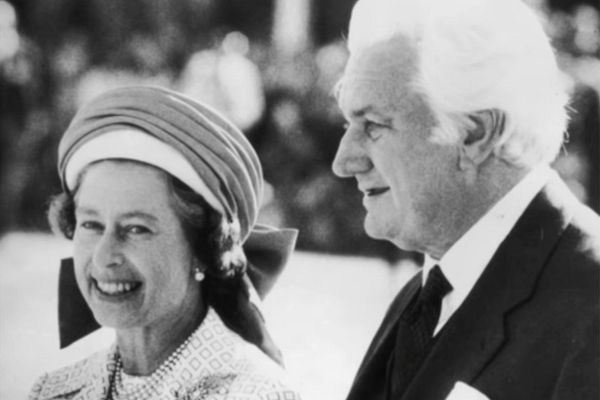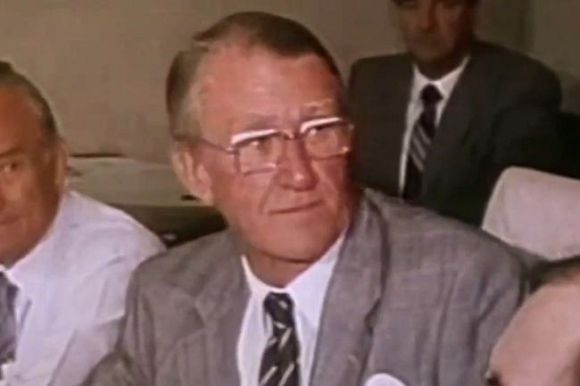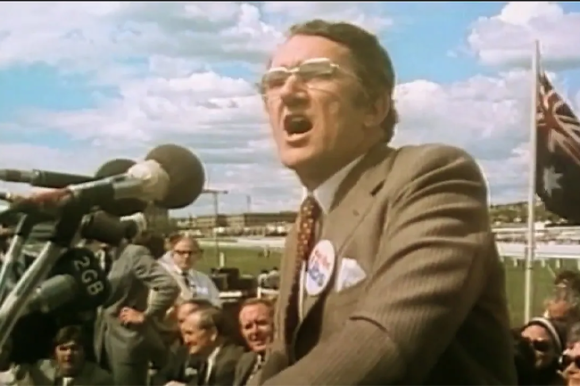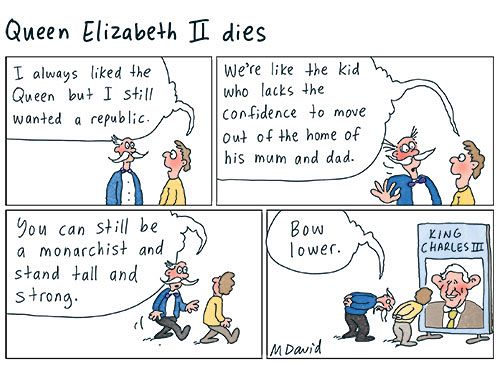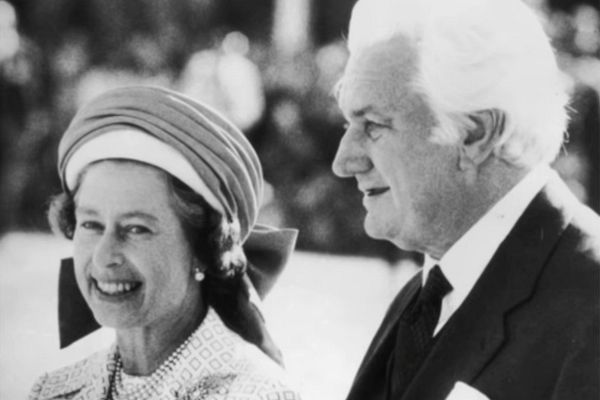Fresh scrutiny of royal interference in Whitlam’s Dismissal has renewed calls for Australia to finally become a republic, writes Dr John Jiggens.
IN 1999, Australia held a referendum to alter the Constitution to transform the Commonwealth of Australia from a constitutional monarchy into a republic by replacing the British monarchy and the Governor-General as heads of state with a president elected by a two-thirds majority of the federal parliament.
The referendum failed with only 46 per cent of Australians voting for the change.
Much of the momentum to remove the monarchy from the Constitution flowed from the outrage over the misuse of the so-called reserve powers of the monarchy in the sacking of the Whitlam Government by Governor-General John Kerr in 1975.
For decades, the narrative about the Dismissal was that Governor-General Kerr acted alone. The Palace maintained the Queen was not involved. This deception was exposed by historian Professor Jenny Hocking when she won a High Court appeal in 2022 for the release of the Palace Letters – Kerr’s correspondence with Buckingham Palace – which revealed the involvement of Queen Elizabeth, our current King Charles and the Palace in this tumultuous affair.
The Palace Letters confirmed that the Queen, through her private secretary, Sir Martin Charteris, discussed the possible dismissal of the Government with the Governor-General and advised him on the use of so-called “reserve powers” to dismiss a democratically elected government, against the advice of both the Australian Solicitor-General and Attorney-General.
When the letters were released in July 2020, the then Opposition Leader, Anthony Albanese, called the Dismissal an event that defined his generation. One of his first political memories, he recalled, was when his history teacher came into the classroom and told them that the democratically-elected government of Australia had been dismissed by the Governor-General.
Even as a young boy, Albanese recalled the shock of this news and the chaos on the streets of Sydney that day. Arriving home late, he was greeted by his mother who said: “They have dismissed OUR government!”
Like most other Labor supporters, the Albanese family had waited 23 years for the election of the Whitlam Government.
Albanese proudly recalled:
The Whitlam Government transformed Australia into the modern vibrant community that we see here today.
Those heady days when we withdrew troops from Vietnam, we recognised China, we implemented free tertiary education of which I was a beneficiary. We created Medibank. The Whitlam Government was one in which we saw advancements for women, advancements for multiculturalism.
It was a blight on our character as a nation that a democratically elected government was dismissed, he said.
Albanese continued:
But I want to say this, that the actions of the Governor-General on the 11th of November to dismiss a government to put himself above the Australian people is one that reinforces the need for us to have an Australian head of state.
The fact that we have waited 45 years for correspondence between the Queen and the Palace and the Governor-General in Australia says that there is something very wrong with our structures of government.
Standing beside Albanese that day was the Shadow Assistant Minister for the Republic, Matt Thistlethwaite. Thistlethwaite congratulated Professor Jenny Hocking for her decade-long campaign to uncover the contents of these important documents about the most significant political upheaval in Australia's history.
Thistlethwaite said:
The uncovering of these documents today highlights the fact that in the future, Australia must begin a mature and serious discussion about our future constitutional arrangements with a view to having a serious discussion about amending our constitution to finally appoint an Australian as our head of state.
Whilst these documents are important historical records that tell the story of our past, an Australian republic is about our future.
In 2023, Antony Albanese became Prime Minister of Australia and Matt Thistlethwaite became Minister for the Republic. When Queen Elizabeth died later that year, Albanese announced he would not pursue constitutional change in his first term.
In the second Albanese Government, the position of Minister for the Republic was abolished.
Greg Barns was the national campaign director for the “Yes” campaign in the 1999 republic referendum. I interviewed him for Bay FM about the prospect of an Australian republic, the Whitlam sacking and the role of the Palace in the Dismissal.
Said Barns:
There's no doubt that Buckingham Palace knew.
The Queen's principal private secretary, Michael Charteris, was not only fully informed, but was encouraging Kerr to do what he did. It's beyond the realms of credibility that Charteris, the Queen's most senior and trusted advisor, would not have informed her as to what was occurring.
There was correspondence with Prince Charles in which our current King congratulated Kerr on what he'd done.
Barns criticised Kerr for his dishonesty, his deception and his secrecy. As Governor-General, Kerr’s duty was to consult with his Prime Minister, Gough Whitlam, and he should have informed Whitlam about plans to dismiss the Government.
Instead, Kerr pretended he was following Whitlam’s plans to resolve the conflict over the blocking of supply by the Senate by holding a half-Senate election, while covertly negotiating with the opposition and the Palace to replace the Whitlam Government.
Greg Barns said:
It was taking [Whitlam] by surprise, which is the most egregious action on the part of Kerr.
In refusing to accept the Prime Minister's request for a half Senate election, Kerr again showed that he was disrespecting and not taking the advice of his Prime Minister as is traditional.
It's intolerable that you have a situation where there's a need for the titular head of the constitutional structure in Australia to be informing a foreign monarch 20,000 kilometres away about what is happening in the Australian domestic political setting. It is a demonstrable argument in favour of a republic.
So, where does the campaign for a republic stand now?
Albanese has said that he's not going to have another referendum, Barns replied, but he did say the previous day that a republic was inevitable:
“But he needs to act on it. And what he needs to be doing is getting the support of those on the other side of politics who do support a republic.”
Most Liberal premiers and leaders support a republic, Barns said:
It's extraordinary that in the 21st Century, we maintain this constitutional arrangement. There are an increasing number of Commonwealth countries that have moved away. I think Jamaica is the latest. Barbados has done it.
We are now in the minority. We sit there with New Zealand and Canada. Canada keeps the Queen, I think, as a point of differentiation from the United States. New Zealand, while progressive in some ways, is more conservative than this country when it comes to the British monarchy.
But Albanese needs to work at it the way former PM Paul Keating worked at it and build community support, Barns said. Albanese has only given lip service to the republic and Barns sees no change.
Said Barns:
In relation to the republic, I think, for example, if New Zealand went, Australia would go. It would be inevitable.
The Canadians have got this U.S. issue, which I think differentiates them. But the more countries that leave the British monarchy, the more likely it is that the momentum will build, and Australians will say that this has just got to be done.
Becoming a republic was not a huge change, he argued:
“This lie of the monarchy that it is expensive, unnecessary and will lead to instability is just nonsense. All you're doing is replacing the Queen's representative with an impartial president. It will lead to no change in the political culture of Australia, except we won't be doffing our hats to the British monarchy.”
Will Australia be the last to leave?
When will we turn out the lights?
Dr John Jiggens is a writer and journalist currently working in the community newsroom at Bay-FM in Byron Bay.
 This work is licensed under a Creative Commons Attribution-NonCommercial-NoDerivs 3.0 Australia License
This work is licensed under a Creative Commons Attribution-NonCommercial-NoDerivs 3.0 Australia License
Support independent journalism Subscribe to IA.

Related Articles
- EDITORIAL: Awed Albo abandons republic (and Australia's dignity) in haste to embrace King Charles
- No Kings: The republican debate Australia won’t have
- Republic debate sparks push for local power reform
- Republic agenda still on the table 25 years after rejection
- Never a better time for PM Albanese to sever UK ties


